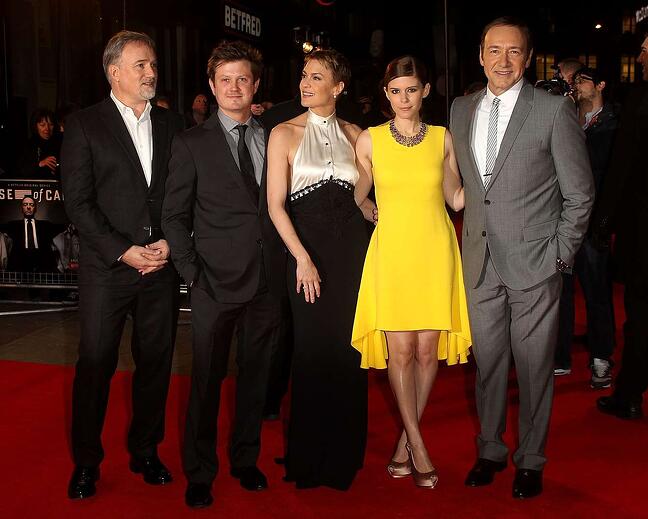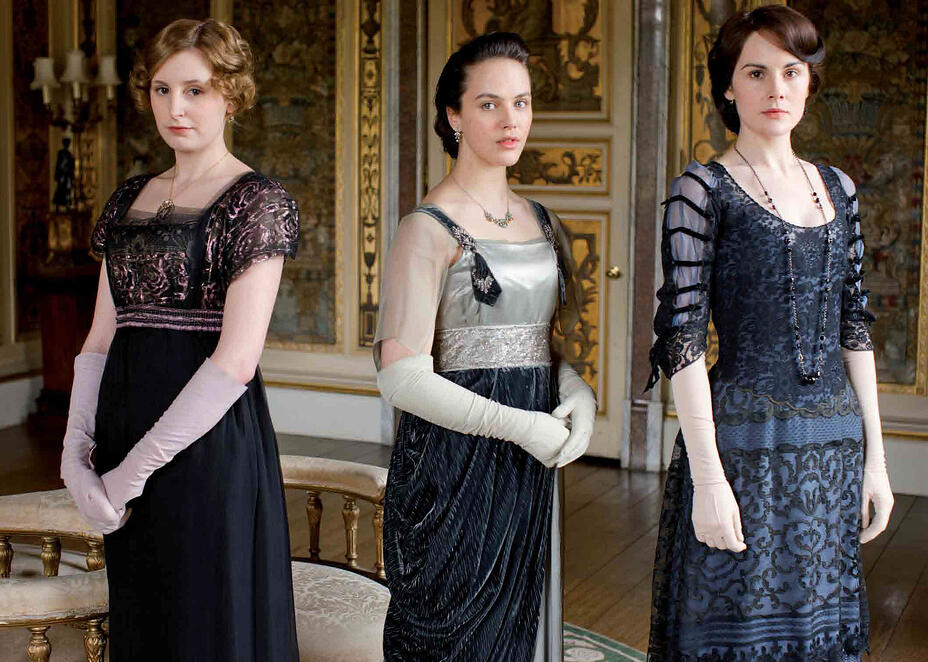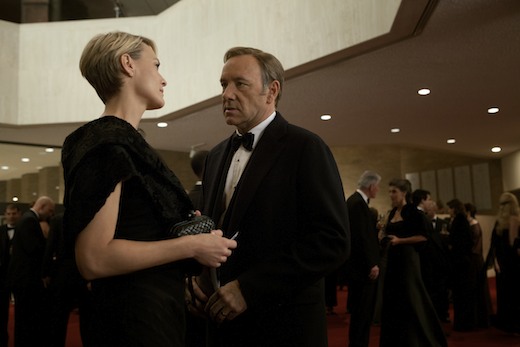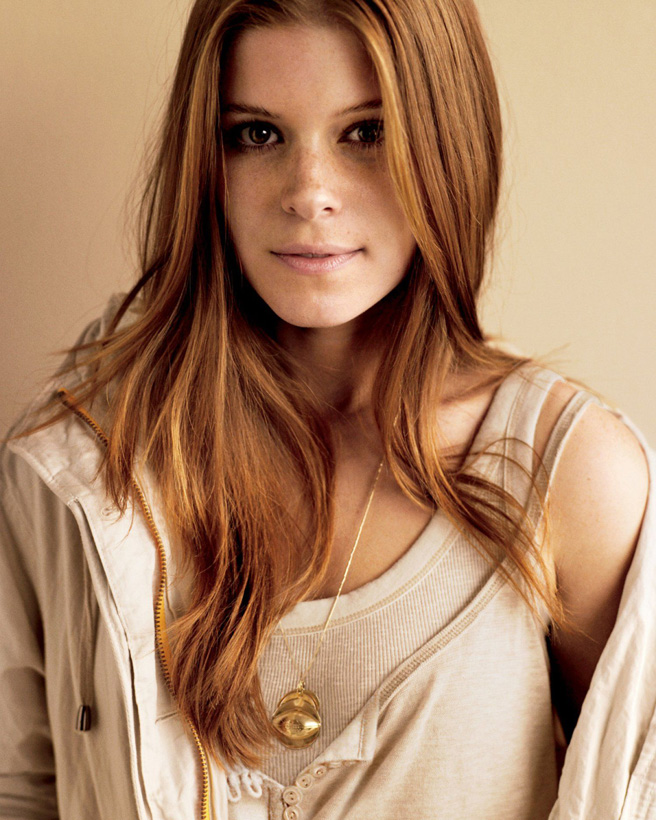LIM COLLEGE FACULTY BLOG
House of Cards, Beauty, Women, High Crimes: Transatlantic Adaptation
posted by Robert Clark
 When a hit British show is copied in the U.S., differences between the original and the copy are a window into the contrasting dreams and values of the two nations. The adaptation of the British show The House of Cards for American consumers is especially interesting for anyone who cares about industries that market style, such as fashion, home-design, video and film. In particular, the shows contrast how the British and Americans fantasize about beauty, women and thrilling political crimes.
When a hit British show is copied in the U.S., differences between the original and the copy are a window into the contrasting dreams and values of the two nations. The adaptation of the British show The House of Cards for American consumers is especially interesting for anyone who cares about industries that market style, such as fashion, home-design, video and film. In particular, the shows contrast how the British and Americans fantasize about beauty, women and thrilling political crimes.
There are no universal rules about cross-Atlantic adaptation, but it seems that whatever the genre of the show, Americans can expect that the copy will be more personal and less socially-oriented than the original. The British workplace comedy The Office, for example, focused on the stupidity of companies and bureaucracies. The American version highlights obnoxious and quirky individual characters instead. A similar shift took place when the British drama Shameless, a fairly bleak exploration of class-conflict, working-class culture and urban poverty moved to America. The emphasis became family dysfunction, wild personal behavior, and outrageously bad parenting, not the broad social issues of the original. Also, criticism of corporations—in the U.S. the financial sponsors of broadcast shows and producers of cable shows—is softer here than in Britain. The U.S. market prefers individual heroes and villains and intimate stories, and to go easy on companies and social analysis.
That is not to say that Britain does not produce fluff that captivates both countries, or that the British cannot create alluring surfaces. Downton Abbey, the British costume soap-opera, more rebroadcast than reshaped for American consumers, is not just excellent fluff, but illustrates a general trend in how women characters and issues are seen in the U.S. and U.K. The popularity of Downton Abbey in the U.S. seems to stem mostly from the audience’s love of romantic melodrama.

But perhaps even more, American viewers have been entranced by the show’s evening gowns, graciously appointed rooms, and the formality of manners and customs on the estate. Downton Abbey is an excellent rebuke to U.S. reality shows that visit the homes of the rich and famous only to prove that celebrities cannot buy taste, class, cultivation or refinement no matter how much money they spend. Nonetheless, Downton Abbey, for Americans, is about what’s “classy” (a good thing in relaxed American parlance). Yet in the context of the show, class is reduced to elaborate apparel and traditional interior design.
To make visuals so important to the conception of social class in the show, of course, restricts the female characters. The women of Downton Abbey, whether domestics or the daughters of the Earl, all want to break free of fashions in apparel, relationships, and careers. But betrayal of their loyalties, failure and even death are often the result. Partly that is because romance plots tend to be about marrying rich; truly independent women are spoilers. Beyond that, costume dramas on TV rely on the sexism of popular culture. Downton Abbey’s women are literally and figuratively laced up. American audiences apparently view that bondage with nostalgia--a fantasy about an imaginary gracious and orderly British past. British audiences, however, see the fetish for surfaces in Downton Abbey as a prettified vision of a retrograde era, when, disastrously, some people with titles and congenital wealth had actual social and political significance. Viewers of every nation love the gowns and furniture.
The American House of Cards wins, however, in a different realm of surface beauty. Its imagery and visual tone are far more effective than those of the original. That is partly due to the invention of high-resolution lightweight digital cameras made by the Red and Zeuss companies that did not exist in the 1990s when the British show was shot. Also, the new show, as Robin Wright’s dresses testify, has a much more stylish fashion closet than did the original. But most of the credit for the better look of the American show must go to filmmaker David Fincher. He can claim such perverse triumphs as having made the picture-postcard quads of Harvard look scary in The Social Network. Equal credit goes to Sidney Wolinsky, whose editing of House of Cards is much like his editing of The Sopranos, and cinematographer Eigil Bryld, who has also worked with The Sopranos creator and writer David Chase. House of Cards has the look of “neo-Noir,” a reprise of the dark and menacing atmosphere of Hollywood b-movie thrillers of the 1940's.

But let’s return to the crucial question of how the look, and relative value on visual excellence, affects the roles of women on the shows. In each version, an extremely attractive young journalist seeks to use the main male character, a diabolical politician, to advance her own journalistic career. Susannah Harker plays Mattie Storin, a rising reporter—highly educated, extremely bright, and rebellious beyond control in the British original. Her wardrobe is reporter-appropriate and therefore a bit frumpy.

But her mind is primarily focused on her work, which she sees as finding out the truth and writing articles that bring down crooked politicians. In the American remake, Kate Mara plays Zoe Barnes, an amoral, seductive and easily duped young reporter, who, although talented, is more thrill-chaser and fame-seeker than professional journalist. Mattie is a vulnerable grown-up with a tough facade. Zoe is a power-bedazzled child, possibly styled to see if American cable TV is ready for a mild version of the situations so lucrative for the nearly illiterate narrative Shades of Grey.

Are these female characters only mere tools (more in the American show than the original) because they are young and callow? No. The wives of Francis/Frank are both under the illusion that they, like their husbands, are powerful. But only in the British version (details would be a spoiler) does the wife actually have more power than it first seems. In both series, the wives accept that for Francis and Frank, sex is just one of many methods to manipulate people into advancing their evil schemes. Each wife gives permission for the affair with the young reporter and more serious exploitation of a subsequent lover. Wives and husbands do not have it much better in one series than the other. Both marriages recall that of Lord and Lady Macbeth. Viewers only have a choice of nastiness. The British show gives the affair a creepy incestuous element and makes the marriage codepedent. In the American version the affair has a sadistic side, and the marriage becomes a contest of wills and betrayals.
Perhaps it is no surprise that an American TV remake is glossier, more attuned to surface beauty, consigns women to sexier and less powerful roles, and is less concerned with social issues than the British original. But the most significant contrast between the two shows may be in the lead character and what motivates his crimes and megalomania.
The late Scottish actor Ian Richardson (a favorite in Royal Shakespeare Company productions), played Francis Urquhart in the original. He dispatches his political enemies (and lovers) with icy calm. In one of my favorite scenes, he wakes up the British King. Urquhart, as Prime Minister, has forced the king to abdicate the throne. But the king has still not grasped that his role in the world is to be a decorative artifact. The king thinks he can succeed in politics without his title, handlers, and staff. Urquhart says to him, “Haven’t you been listening at all? Do you still not understand? You come from a family with no talents, and you have no constituency.” Although Urquhart is a monster, it is hard not to appreciate his disgust with pretenders.

Urquhart wields such justified insights into the undeserving members of elites because he comes himself from a family of ancient wealth, privilege and prominence. He is also cultivated enough to quote poetry (which none of his political cronies recognize) from time to time and to acknowledge, aloud, that his cruelty has precedent in Machiavelli’s The Prince and Shakespeare’s Richard III. Urquhart’s clubby sense of his own place in the elite is accompanied by general misanthropy. He detests anyone he sees as weak, stupid, or unsophisticated enough to exclude from his own class.
Frank Underwood, Urquhart’s American counterpart, is also his social and class opposite. Underwood was a poor boy from a poor district in South Carolina. His fortunes were launched when he graduated from a military college transparently modeled on The Citadel. There is even a sort of flashback episode in which Frank pines a bit about a gay affair he had with another cadet. (Is the viewer to think that episode has something to do with Frank's coldness and evil? Apparently so.) Whereas Francis Urquhart was enraged by the failure of people to live up the qualities he imagines justify rule by an elite, Frank’s rage is fueled by contempt for fellow poor people who lack his ruthlessness and ambition. The American remake is a dark and dirty Horatio Alger story. It is suppposed to be poignant that social climbing succeeded for an individual but made him a thug. The American story is not much more democratic than the British one concerning social mobility. It simply makes the fruit of social climbing self-hatred instead of self-destructive snobbery. 
Both versions of House of Cards are nasty--and great TV. To see more interesting female stars, the American shows The Good Wife or even the comedy Parks and Recreation are better choices. A more genuine take on politics, evil politicians, and policy-making can be found in the trilogy of novels by Michael Dobbs from which the British show derives. Dobbs has had quite a career. He came from a working-class family, graduated from Oxford, financed his years earning a Ph.D. in international affairs at The Fletcher School by working as a reporter and columnist for The Boston Globe, returned to England to serve in high posts in the Thatcher government, held a top job at advertising firm Saatchi and Saatchi, wrote the bestsellers on which House of Cards in based, and was made a Baron. The novels are far more realistic than the show, and, as one would expect, careful about the details of contemporary policy and government, weaving in historical events and thinly disguised portraits of actual politicians. Dobbs has an insider's perspective on the horrible Thatcher years, which recently have been made over, at least in film and pop culture, into something like...Downton Abbey.
![limcollege.edu staff Staff Profiles Desktops & Documents rclark Desktop Michael Dobbs Print03[1]](http://cdn2.hubspot.net/hub/74633/file-235536411-jpg/images/--limcollege.edu-staff-staff_profiles-desktops__documents-rclark-desktop-michael-dobbs-print03[1].jpg?width=407&height=271&name=--limcollege.edu-staff-staff_profiles-desktops__documents-rclark-desktop-michael-dobbs-print03[1].jpg)
Beauty in the American remake resides in lighting, camera work, lovely and clueless young women, and tricking and destroying everyone in sight. Women have less power and intelligence than in the British show, but are sexier. Committing political crime in The House of Cards is to kill weaklings, hypocrites, snobs and incompetents, perhaps understandable in itself, while maintaining a tranquility about barbarous acts that was definitive of the ruling class when fuedal titles mattered. In the U.S. remake, political crime is an exagerrated version of all that is necessary and, implicitly, normal, to get ahead. The sexism in each show is native to pop culture overall, but even more striking since these shows explore the power that is denied to all but few women. Are they realistic depictions of misogyny in the service of promoting fairness and equality? Are they more typical pop exploitation of violence against women and sex that rarely fails to bring in a popular audience, standard marketing practices, ad revenue, and excitement?
Whether to prefer the British or American show may depend on one’s taste as well as cultural predispositions. We are in the happy situation of being able to let the more socially aware British series and more personal American one complement one another. Both could explore gender, relationships and social class with better insight, if that mattered to the producers. Each show is wicked fun, and, more convincing in the rawness of its story about power battles than, let's say, another 1990's original, The West Wing.
--Robert Clark
Topics: fashion, House of Cards, Kevin Spacey, Kate Mara, The House of Cards, Ian Richardson, Political Dramas, Britain vs. America, women's roles, political wives